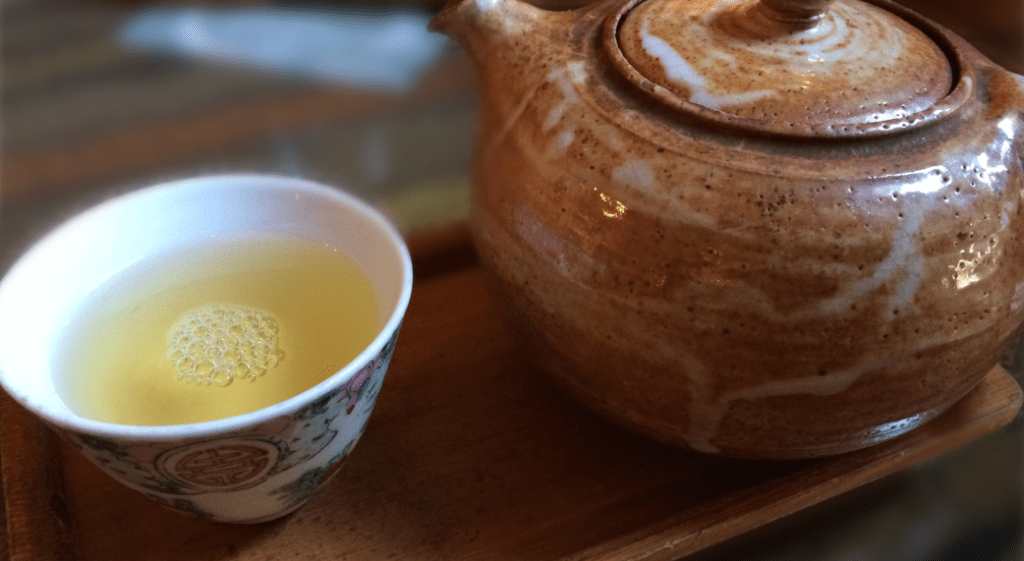Is Darjeeling Tea's Production In Jeopardy?

Table of Contents
Climate Change and its Impact on Darjeeling Tea Gardens
Darjeeling's high-altitude tea gardens, nestled between 6,000 and 8,000 feet, are particularly vulnerable to the effects of climate change. Changing weather patterns are significantly impacting tea plant growth and the overall yield. Erratic rainfall, unpredictable monsoons, and rising temperatures disrupt the delicate balance needed for optimal tea cultivation. These changing conditions directly affect the quality and quantity of Darjeeling tea produced.
- Increased pest and disease outbreaks: Warmer temperatures create favorable conditions for pests and diseases, damaging tea plants and reducing yields. This necessitates increased pesticide use, raising concerns about environmental sustainability and the health of the tea plants themselves.
- Changes in the timing and duration of the plucking seasons: The traditional plucking seasons are shifting, impacting the overall production schedule and potentially affecting the quality of the final product. This unpredictability makes planning and resource allocation significantly more challenging for Darjeeling tea farmers.
- Reduced tea quality due to stress on the tea plants: The stress caused by fluctuating temperatures and erratic rainfall leads to lower-quality leaves, compromising the unique flavor profile that defines Darjeeling tea. This can lead to a decline in the premium price commanded by this exceptional tea.
- Potential loss of unique Darjeeling tea flavor profiles: The specific terroir and climate of the Darjeeling region contribute to its distinctive flavor. Climate change threatens this unique character, potentially leading to the loss of these prized characteristics that make Darjeeling tea so special.
Labor Shortages and the Aging Workforce in Darjeeling Tea Plantations
The Darjeeling tea industry faces a significant challenge: a dwindling workforce. Attracting younger generations to the demanding work in tea gardens is proving difficult. This aging workforce poses a significant threat to the future of Darjeeling tea production.
- Lack of attractive wages and working conditions: Low wages and challenging working conditions are pushing younger generations to seek employment in urban areas with better opportunities. This exodus of young workers leaves a critical gap in labor supply.
- Migration of younger workers to urban areas seeking better opportunities: The allure of higher-paying jobs and improved living conditions in cities is drawing young people away from the traditional occupation of tea cultivation. This trend is accelerating the aging of the workforce.
- Loss of traditional tea-making skills and knowledge: The older generation possesses invaluable expertise in traditional tea-making techniques. The departure of these skilled workers risks a significant loss of this vital knowledge and heritage.
- Increased reliance on mechanization, potentially affecting the quality of Darjeeling tea: To compensate for labor shortages, there’s an increasing reliance on mechanization. However, some argue that this can negatively impact the delicate handling required for producing high-quality Darjeeling tea.
Socio-economic Challenges and Sustainable Practices
The socio-economic well-being of Darjeeling tea farmers and workers is inextricably linked to the sustainability of the industry. Addressing poverty and inequality is crucial for ensuring the long-term viability of Darjeeling tea production.
- Fair trade practices and their impact on farmer incomes: Implementing fair trade practices ensures that farmers receive a fair price for their tea, improving their livelihoods and incentivizing sustainable agricultural practices.
- Sustainable agricultural methods to minimize environmental impact: Adopting environmentally friendly farming methods is essential for preserving the delicate ecosystem of the Darjeeling hills and ensuring the long-term health of the tea plants.
- Government policies and support for Darjeeling tea growers: Government initiatives aimed at supporting farmers, investing in research, and promoting sustainable practices are vital for the industry's future.
- The role of cooperatives in improving the lives of tea workers and promoting sustainable practices: Tea worker cooperatives can empower farmers, promote collective bargaining, and facilitate the adoption of sustainable agricultural practices.
Competition from Other Tea-Producing Regions
Darjeeling tea faces increasing competition from other tea-producing regions globally, many offering lower production costs. This intensified competition puts pressure on Darjeeling's market share and pricing.
- Lower production costs in other regions: Tea production in other countries often benefits from lower labor costs and economies of scale, making it more challenging for Darjeeling tea to compete on price.
- Increased global tea production and market saturation: The global tea market is becoming increasingly saturated, intensifying competition among different tea-producing regions.
- The need for Darjeeling tea to differentiate itself through quality and branding: To maintain its premium position, Darjeeling tea must leverage its unique quality, flavor profile, and heritage through effective branding and marketing strategies.
- Marketing strategies to maintain Darjeeling tea's premium status: Investing in marketing and branding initiatives is crucial to highlight the unique qualities of Darjeeling tea and maintain its high-value status in the global market.
Conclusion: Securing the Future of Darjeeling Tea
The future of Darjeeling tea is intertwined with addressing the significant challenges presented by climate change, labor shortages, socioeconomic factors, and global competition. Preserving this iconic beverage requires a collaborative effort between the government, tea producers, and consumers. Supporting sustainable Darjeeling tea producers is crucial to ensure its continued production. Make conscious purchasing decisions, choosing authentic and sustainably sourced Darjeeling tea. Learn more about the challenges facing Darjeeling tea and how you can help protect its future. Enjoy the unique taste and heritage of authentic Darjeeling tea!

Featured Posts
-
 Lizzos Trainer Defends Her Fitness Journey
May 05, 2025
Lizzos Trainer Defends Her Fitness Journey
May 05, 2025 -
 Lizzos Weight Loss Journey Diet Exercise And Body Positivity
May 05, 2025
Lizzos Weight Loss Journey Diet Exercise And Body Positivity
May 05, 2025 -
 Ufc 314 Takes A Hit Knockout Artists Fight Cancelled
May 05, 2025
Ufc 314 Takes A Hit Knockout Artists Fight Cancelled
May 05, 2025 -
 Simone Biles To Announce Riders Up At The Kentucky Derby
May 05, 2025
Simone Biles To Announce Riders Up At The Kentucky Derby
May 05, 2025 -
 Subdued Glamour Blake Lively And Anna Kendricks Premiere Competition
May 05, 2025
Subdued Glamour Blake Lively And Anna Kendricks Premiere Competition
May 05, 2025
Latest Posts
-
 Dzhidzhi Khadid I Kuper Pervye Kommentarii Modeli Ob Otnosheniyakh
May 05, 2025
Dzhidzhi Khadid I Kuper Pervye Kommentarii Modeli Ob Otnosheniyakh
May 05, 2025 -
 Gigi Hadid Discusses Bradley Cooper A Candid Conversation
May 05, 2025
Gigi Hadid Discusses Bradley Cooper A Candid Conversation
May 05, 2025 -
 The Gigi Hadid Bradley Cooper Connection A Closer Look
May 05, 2025
The Gigi Hadid Bradley Cooper Connection A Closer Look
May 05, 2025 -
 Gigi Hadid And Bradley Cooper A Look At Their Unexpected Connection
May 05, 2025
Gigi Hadid And Bradley Cooper A Look At Their Unexpected Connection
May 05, 2025 -
 Will Arnett And Bradley Cooper Is This Thing On Nyc Filming Photos
May 05, 2025
Will Arnett And Bradley Cooper Is This Thing On Nyc Filming Photos
May 05, 2025
